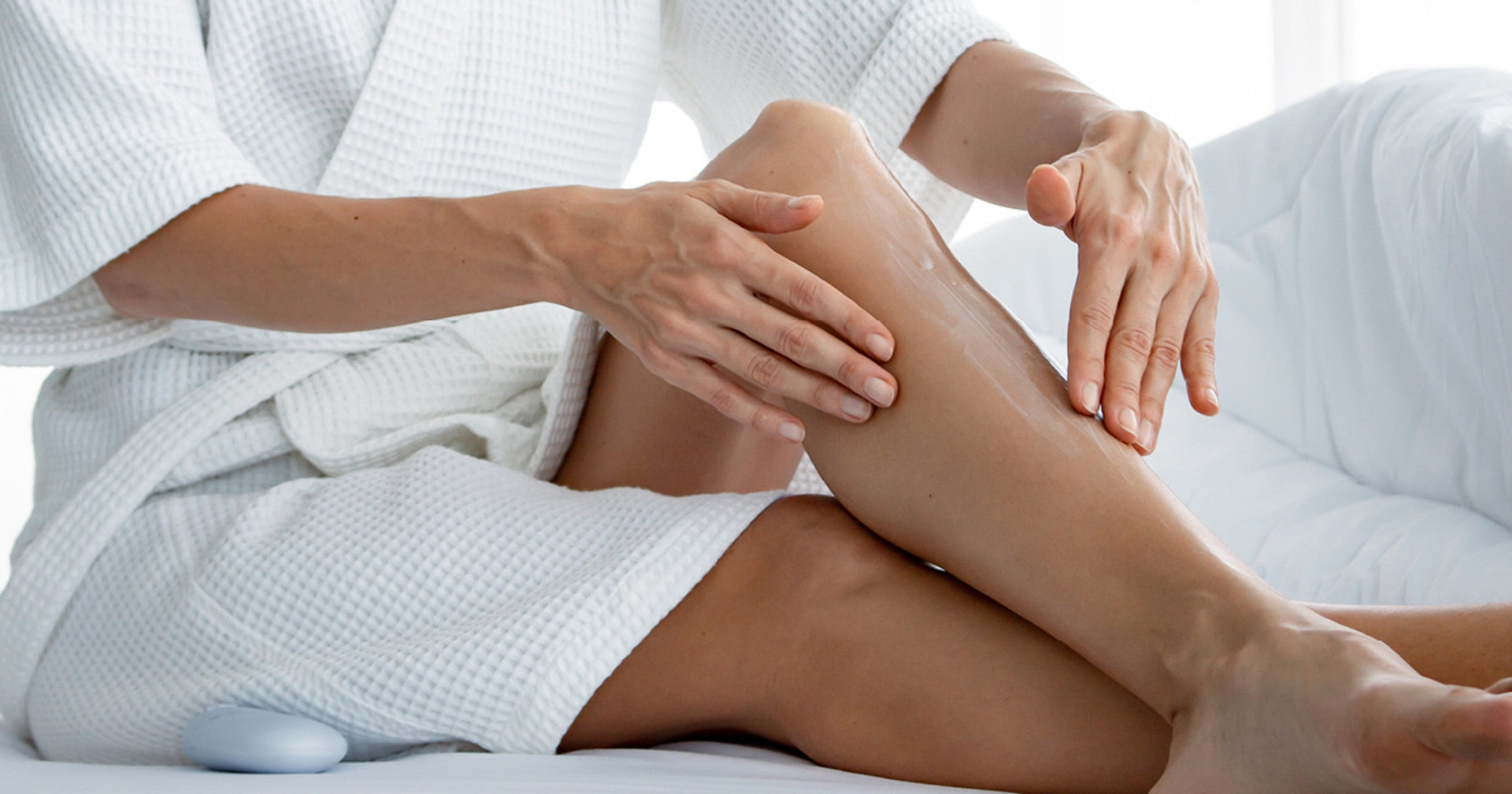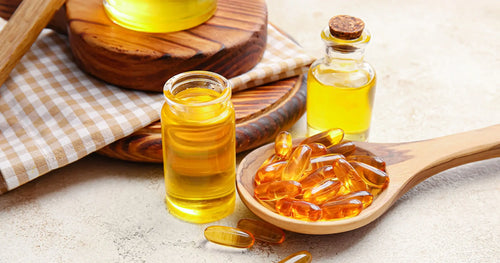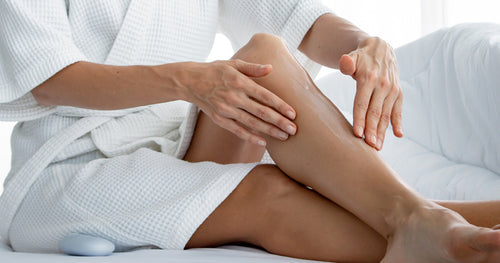
Our skin is not only our body’s first barrier of protection – it also absorbs approximately 60 percent of what we put on it. To allow skin to do its job and be as healthy as it can be, it’s important to nourish it from the inside with the right foods and supplements, as well as to apply skin-healthy nutrients topically. A few vitamins, including A, D, and E, do double duty – they’re beneficial to the skin both when taken as a supplement and when used topically.
A Closer Look at Skin Layers
Our skin is composed of two primary layers: the epidermis and the dermis. The epidermis, or outermost layer, acts as a protective barrier. It helps keep harmful pollutants out, locks in moisture and nutrients, and serves as a barrier to potential infection. The dermis is found directly below the epidermis. This is where most of our skin’s primary functions take place. The nerves, glands, and blood vessels are located here.
Several factors affect our skin health, including everything from the sun’s rays, to smoking, to chemicals found in some of the products we use. All of these things combine to damage our skin. And according to the FDA, “Under the law, cosmetic products and ingredients do not need FDA premarket approval, with the exception of color additives.” Thus, it’s in everyone’s best interest to learn about the ingredients that are potentially harmful.
Some of the ingredients to avoid in skin care products include parabens, phthalates, PABA, artificial ingredients, and colors. You may also choose to support products made in the USA and those not tested on animals.
Skin-Loving Antioxidants
Antioxidants help protect the cells in our body from free-radical damage. Free radicals can cause oxidative stress in our cells.
Vitamin A is an antioxidant that helps protect cells against damage from exposure to free radicals and encourages healthy skin cell production to rebuild tissue from scrapes and wounds. Topically, vitamin A helps draw water to the surface of the skin.
Vitamin E is found in high amounts in the outer layer of the skin and plays an important role in antioxidant protection. One of its main functions in skin care products is to protect against sun damage by absorbing UV light, helping to prevent dark spots and wrinkles.
Vitamin D is produced when the sun is absorbed by the skin. It is then converted and transported throughout the body to help create healthy cells, including skin cells. It may be difficult to synthesize adequate amounts of vitamin D from sunlight alone, due to limited time in the sun, sunscreen, time of year, and age, so supplemental vitamin D can be a good option.
By nourishing our skin from within and topically with vitamins A, D, and E, we can keep our skin healthy and glowing.






